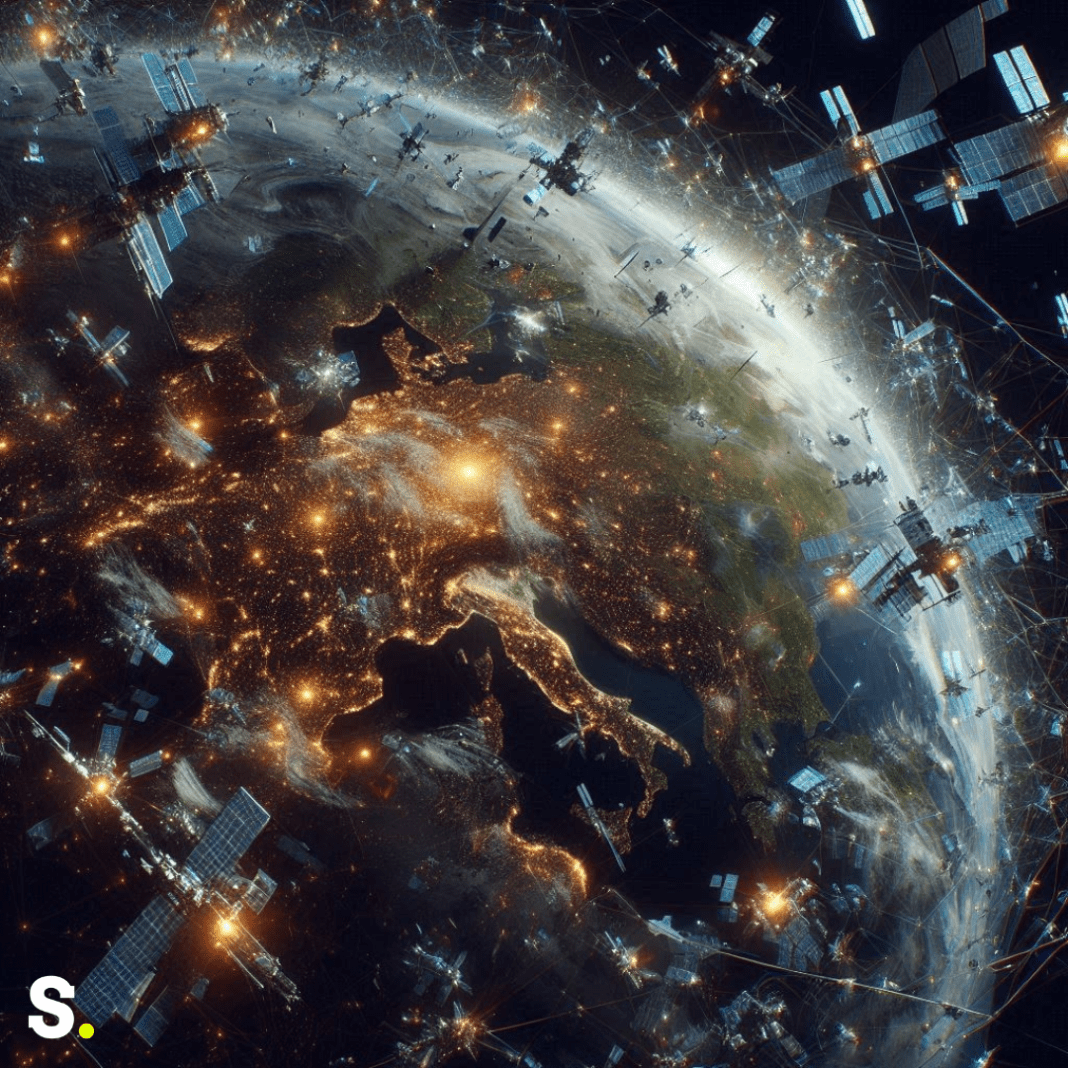Space exploration has always been a beacon of human ambition, serving as a gateway to understanding the cosmos and pushing the boundaries of what is possible. However, recent developments have transformed space from a domain of scientific discovery into a battleground of commercial and geopolitical interests, where the stakes and risks are higher than ever. The exploration of space, once the exclusive domain of state-funded programs, has evolved dramatically over the last decade. Today, it is characterized by a rapid surge in private investments and heightened national ambitions, particularly in Low Earth Orbit (LEO) and Medium Earth Orbit (MEO). Here, companies and nations are in a fierce race to deploy constellations of satellites that promise to revolutionize communication, energy generation, manufacturing, and even pave the way for space tourism, despite the mounting risks associated with such rapid expansion.
The New Frontier of Commercialization and Crowding in Space
The commercial satellite market has undergone a seismic shift, moving away from its traditional stronghold in Geostationary Orbit (GEO) to the more accessible and versatile orbits of LEO and MEO. In GEO, satellites orbit in sync with the Earth’s rotation, making it ideal for stable communication services. However, this orbit has become increasingly crowded and expensive to access. As the cost of launching satellites has plummeted—thanks in large part to advancements in reusable rocket technology and miniaturization—more actors, from large corporations to start-ups, are venturing into space. The democratization of space access is allowing a broader range of businesses to explore innovative applications, including hyperspectral remote sensing for environmental monitoring, global broadband internet services, and even space-based manufacturing.
However, this surge in space activity has not come without consequences. The influx of satellites into LEO and MEO is leading to an increasingly congested orbital environment, where the risks of satellite collisions and the creation of space debris are becoming more significant, raising concerns about the long-term sustainability of these orbits. Space debris, often referred to as “space junk,” can travel at speeds of up to 28,000 kilometers per hour, turning even small fragments into deadly projectiles. The exponential growth of space traffic heightens the risk of catastrophic chain reactions, known as the Kessler Syndrome, where collisions generate debris that, in turn, causes more collisions. This could render parts of LEO and MEO unusable for future missions, posing a significant threat to both commercial and scientific endeavors.
National Ambitions and the Militarization of Space
As space becomes more accessible, nations around the world are ramping up their investments in space infrastructure, viewing it as a key component of national power and prestige. Countries like China, Russia, the United States, and members of the European Union are at the forefront of this new space race, each with ambitious plans for new space stations, lunar exploration missions, and Mars expeditions. These national ambitions are not just about scientific exploration or economic gains; they also have profound military implications.
Space is increasingly being recognized as the ultimate high ground in military strategy. The development of space forces, like the U.S. Space Force, and the integration of space-based assets into military operations are clear indicators of the growing importance of space in national defense strategies. Nations are investing in capabilities that range from anti-satellite weapons to space-based missile defense systems, further intensifying the competition for dominance in this strategic domain. The militarization of space raises significant concerns about global security, as it increases the risk of conflicts extending beyond Earth’s atmosphere. The potential for space-based warfare, including the targeting of satellites that are crucial for communications, navigation, and surveillance, could have devastating consequences for global stability.
Navigating the Risks: The Urgent Need for Governance
The rapid expansion of space activities, driven by both commercial interests and national ambitions, is outpacing the existing framework of international space law. The Outer Space Treaty, established in 1967, remains the cornerstone of international space governance. However, it was crafted in an era when space exploration was limited to a few state actors and did not anticipate the complexities of today’s space environment. The treaty’s provisions, such as the prohibition of weapons of mass destruction in space and the principle of space being the “province of all mankind,” are increasingly inadequate to address the challenges posed by the commercialization and militarization of space.
The risks associated with overcrowded orbits, space debris, and the potential for militarized conflicts are becoming more pronounced. Yet, there is a lack of robust governance structures to mitigate these threats. The absence of updated international regulations increases the likelihood of disputes over orbital slots, frequency allocations, and access to space resources such as lunar water or asteroid minerals. These disputes could escalate into conflicts, both in space and on Earth, if not managed through effective diplomacy and cooperation.
The urgency of these challenges cannot be overstated. As space becomes more congested and contested, the risk of conflicts and environmental damage increases, highlighting the critical need for updated international regulations that reflect the current realities of space exploration and utilization. This includes not only stricter guidelines for satellite deployment and debris management but also new agreements on the militarization of space and the peaceful use of space resources. The future of space exploration depends on our ability to navigate these risks through collective action, ensuring that space remains a domain of opportunity, rather than one of conflict.
The growing commercialization and national ambitions in space present a dual-edged sword of opportunities and risks. The democratization of space access has unleashed a wave of innovation and economic potential, but it has also introduced challenges that require careful management. Without updated governance and international cooperation, the rapid expansion of space activities could lead to conflicts, environmental damage, and the militarization of this final frontier. The time to act is now, to ensure that space remains a place of exploration and discovery for the benefit of all humanity.




